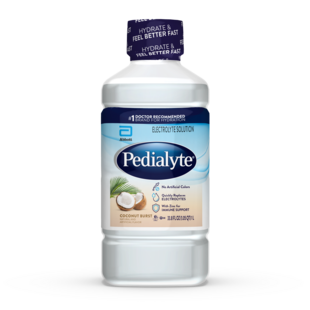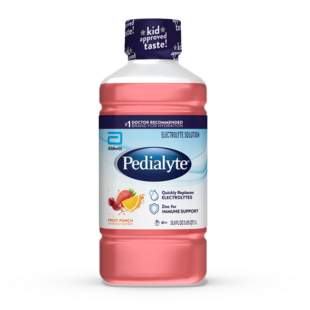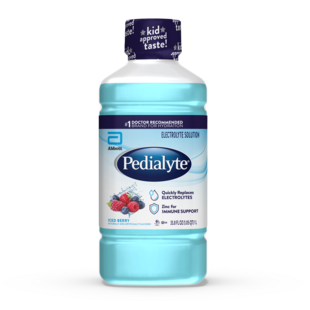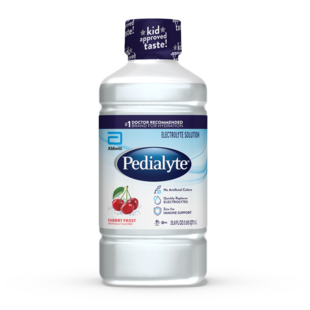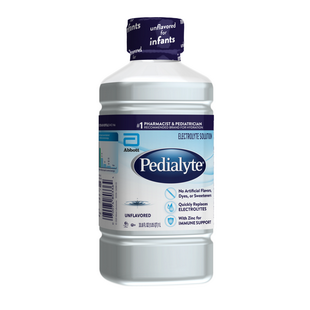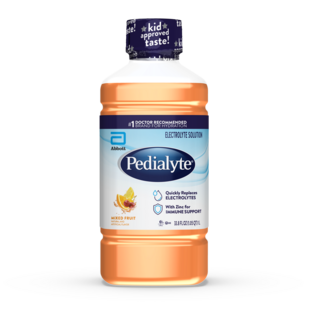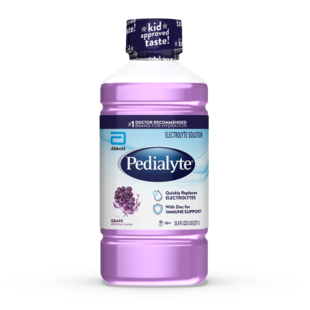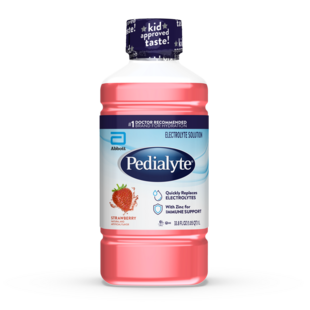| List Number | Item | Market |
|---|---|---|
| 67461 | Pedialyte Coconut Burst / 33.8 fl oz (1 L) Bottle / 4 ct | Retail |
| 69096 | Pedialyte Fruit Punch / 1.1 QT (1 L) Bottle / 4 ct | Retail |
| 69098 | Pedialyte Iced Berry / 1.1 QT (1 L) Bottle / 4 ct | Retail |
| 69090 | Pedialyte Cherry Frost / 1.1 QT (1 L) Bottle / 4 ct | Retail |
| 64380 | Pedialyte Unflavored / 33.8 fl oz (1 L) Bottle / 4 ct | Retail |
| 00336 | Pedialyte Unflavored / 33.8 fl oz (1 L) Bottle / 2 x 4 ct | Retail |
| 66284 | Pedialyte Mixed Fruit / 33.8 fl oz (1 L) Bottle / 4 ct | Retail |
| 00365 | Pedialyte Mixed Fruit / 33.8 fl oz (1 L) Bottle / 2 x 8 ct | Retail |
| 00240 | Pedialyte Grape / 33.8 fl oz (1 L) Bottle / 2 x 8 ct | Retail |
| 53983 | Pedialyte Strawberry / 33.8 fl oz (1 L) Bottle / 8 ct | Retail |
Hospitals and institutions can order Abbott Nutrition products by calling 800-551-5838, Monday – Friday, 8:00 a.m. to 5:30 p.m. EST.


